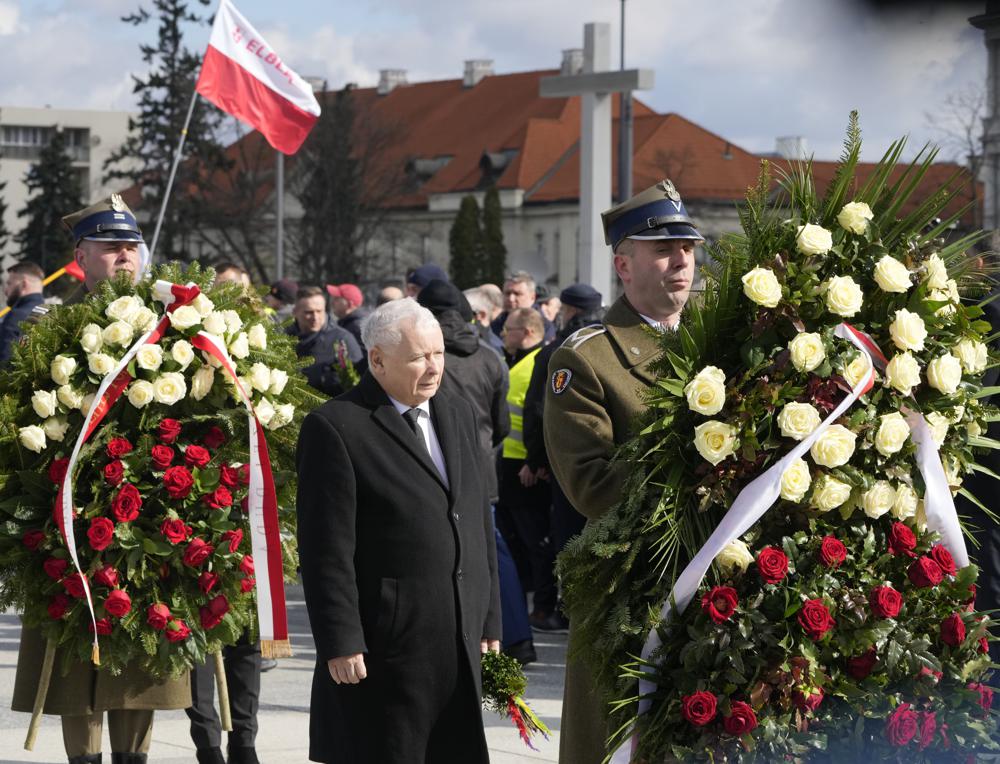
WARSAW, Poland — Sirens went off in some Polish cities early Sunday to mark the anniversary of the 2010 presidential plane crash, despite widespread protests that their sound would be unnecessary trauma to hundreds of thousands of refugees from the war in Ukraine.
The sirens were intended to add to the significance and the plaintive character of observances honoring late President Lech Kaczynski, the first lady and 94 other prominent Poles killed 12 years ago in a plane accident in Russia.
The sirens were heard at 0641 GMT, the exact time the presidential plane crashed on April 10, 2010, near Smolensk, Russia.
Kaczynski was the twin of Jaroslaw Kaczynski who is the leader of the main ruling Law and Justice party and Poland’s key politician. The brothers founded the party in 2001.
Wreaths and flowers were laid in Warsaw and across the country at the monuments and graves to the victims of the national tragedy. Jaroslaw Kaczynski and party figures were at the monuments to the late president and to all the victims, in downtown Warsaw.
The authorities were sending text messages to refugees’ phones and posting public warnings that the sirens would mean no danger.
The head of a Ukrainian support center in Warsaw, Myroslava Keryk, said that the “Ukrainian mothers had time to explain to their children that the sirens will not sound an air raid and that there was nothing to be afraid of.”
But to many Poles the use of sirens was a bad idea.
“This is a system for warning and alarm, not for celebrations,” said Adam Glogowski, a retired fireman. “We don’t need sirens to remember, to honor the crash victims.”
Amid Russia’s invasion of Ukraine and unfriendly relations with Moscow, Poland’s government is reviving its controversial allegation that the crash was a Kremlin assassination plan. It is fueled by Russia’s refusal to return the plane’s wreckage, obstructing detailed investigation.
“We have no doubts that it was an assassination,” Kaczynski said last week, but offered no proof.
Poland’s state commission for analyzing air travel incidents said the crash in dense fog on approach to the rudimentary Smolensk airport was the result of human errors made in adverse conditions. But a separate team appointed by the government alleges that explosions preceded the crash, which was intentional. It is to present another of its reports on Monday.




